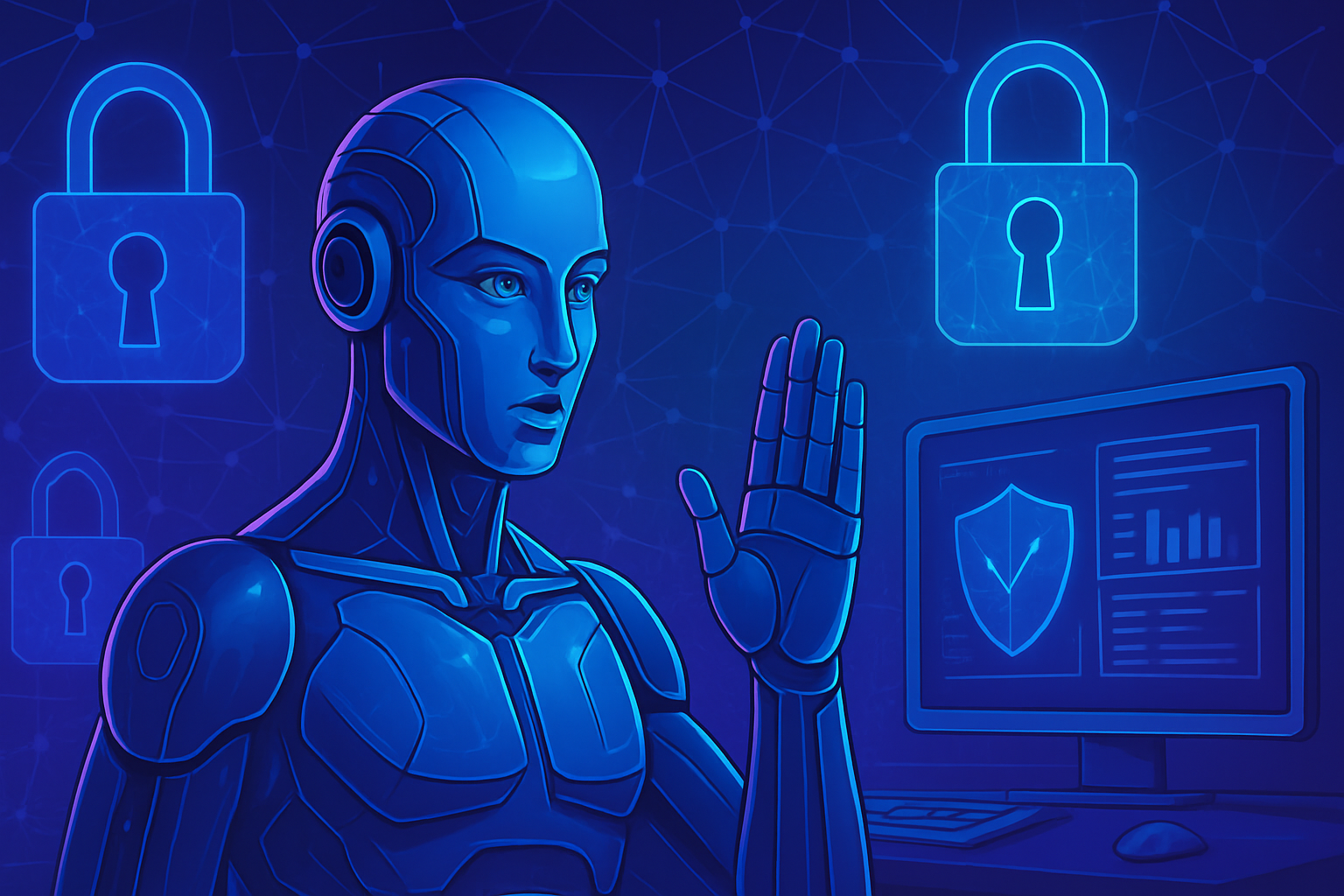The exponential rise of artificial intelligence is disrupting the landscape of cybersecurity, creating a duality between unprecedented opportunities and destabilizing risks. Experts emphasize the need for strengthened public-private coordination to navigate this complex context. The adaptability of defense systems is a major issue in the face of a constantly evolving threat. The urgent transformation towards intelligent and integrated security architectures is becoming essential to ensure the resilience and integrity of digital infrastructures.
The rise of artificial intelligence and its implications on cybersecurity
The growing power of the artificial intelligence sector in China is redefining the field of cybersecurity. Conferences, such as the Beijing Cybersecurity Forum in 2025, address the unprecedented opportunities and complex risks posed by AI. According to experts, this technology is a double-edged sword, offering both strategic possibilities and disruptive challenges.
The challenges posed by artificial intelligence
Zhao Zhiguo, executive director of the Expert Advisory Committee of the Internet Society of China, emphasizes that AI amplifies threats and accelerates attacks. This dynamic increases the asymmetry between attackers and defenders, requiring smarter and more resilient security systems. Recognizing this asymmetry calls for a rethink of how cybersecurity infrastructures are designed and implemented.
Recommendations for a strengthened cybersecurity system
Zhao proposes a series of recommendations aimed at transforming the landscape of digital security. The first is a widespread deployment of AI within cybersecurity infrastructures, enabling advanced threat detection. Next, he discusses the importance of dynamic innovation, encouraged by leading companies in the sector. Finally, he stresses the need for proven concrete applications, such as vulnerability analysis.
Companies facing their responsibilities
An Lijia, vice president of the All-China Federation of Industry and Commerce, calls on companies to take a more proactive role. The shift from a passive response to proactive defense is essential for establishing intrinsic cybersecurity frameworks. This new approach, rooted in operational reality, will enable the anticipation of threats rather than merely reacting to them.
The integration of cybersecurity into the national economy
Sun Weimin, chief engineer of the Cyber Administration of China, confirms that cybersecurity is now integrated into all aspects of the national economy. The elevation of internal security levels is an absolute necessity. Currently, up to 90% of systems rely on open-source software, leaving doors open for the exploitation of vulnerabilities.
Making cybersecurity ubiquitous
Establishing fundamental security protocols during software development is crucial. Furthermore, creating a national defense system that combines operators, regulators, and service providers is becoming evident. The overall goal is to ensure collaborative defense against growing digital threats.
Calls to action and regulations
A mandate emerges from discussions around cybersecurity, where regulation becomes crucial. The resolution adopted during the plenary session of the 20th Central Committee of the Communist Party of China has clearly established this need. Emphasis must be placed on strengthening the cybersecurity system and implementing monitoring systems to ensure the security of AI applications.
Qi Xiangdong, president of Qi-Anxin Technology Group, insists on a fundamental point: without cybersecurity, there is no national security. It is urgent to promote a systemic integration of cybersecurity measures in the development of AI, in order to protect businesses and thus the entire nation.
With the rapid evolution of technologies, every player in the sector must engage in proactive efforts to build a secure and resilient digital future. The interactions between artificial intelligence and cybersecurity redefine the necessary strategies to counter contemporary threats while fostering innovation.
For a deeper exploration of the issues related to these transformations, consult recent analyses on cybersecurity by exploring articles related to AI security in various regulatory frameworks: AI Security at Meta, Cybersecurity and Priorities for 2025, European Regulation and Cybersecurity, Trends in AI and Cybersecurity, AI Race and Geopolitical Issues.
Frequently Asked Questions about Artificial Intelligence and Cybersecurity
Why does artificial intelligence pose a challenge to cybersecurity?
Artificial intelligence amplifies threats and accelerates attacks, making the digital environment more vulnerable. This creates increased asymmetry between attackers, who can use AI to optimize their strategies, and defenders, who must adapt to a constantly changing landscape.
What measures should be taken to integrate AI into cybersecurity?
It is crucial to adopt a systemic deployment of AI within cybersecurity infrastructures, to promote innovations based on scenarios driven by leading companies, and to focus on proven applications such as advanced threat detection and vulnerability analysis.
How can companies improve their cybersecurity using AI?
Companies must shift from a passive response to proactive defense by integrating intrinsic cybersecurity frameworks, developing AI technologies that can anticipate and neutralize threats before they materialize.
What role does the government play in strengthening cybersecurity in the face of AI?
The government must establish oversight systems and strengthen the overall cybersecurity system, ensuring that the measures taken are adequate against the challenges posed by artificial intelligence.
What recommendations are there for improving security protocols during software development?
It is recommended to strengthen security protocols from the earliest stages of development and to ensure that systems do not rely excessively on open-source software, which may contain exploitable vulnerabilities.
How is cybersecurity integrated into the national economy?
Cybersecurity is now deeply embedded in all aspects of the national economy, making protective measures essential to prevent vulnerabilities from compromising the security of critical infrastructures.
What are the main benefits of AI in the field of cybersecurity?
AI allows for increased automation of security tasks, improves the speed of threat detection, and enables large data analyses to identify trends and anticipate potential attacks.
What does a joint national defense system against cybersecurity threats consist of?
A joint defense system involves collaboration among operators, regulators, and service providers, creating a robust network that enhances collective security against cyber threats, including those arising from AI.






